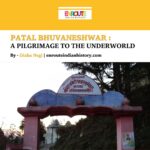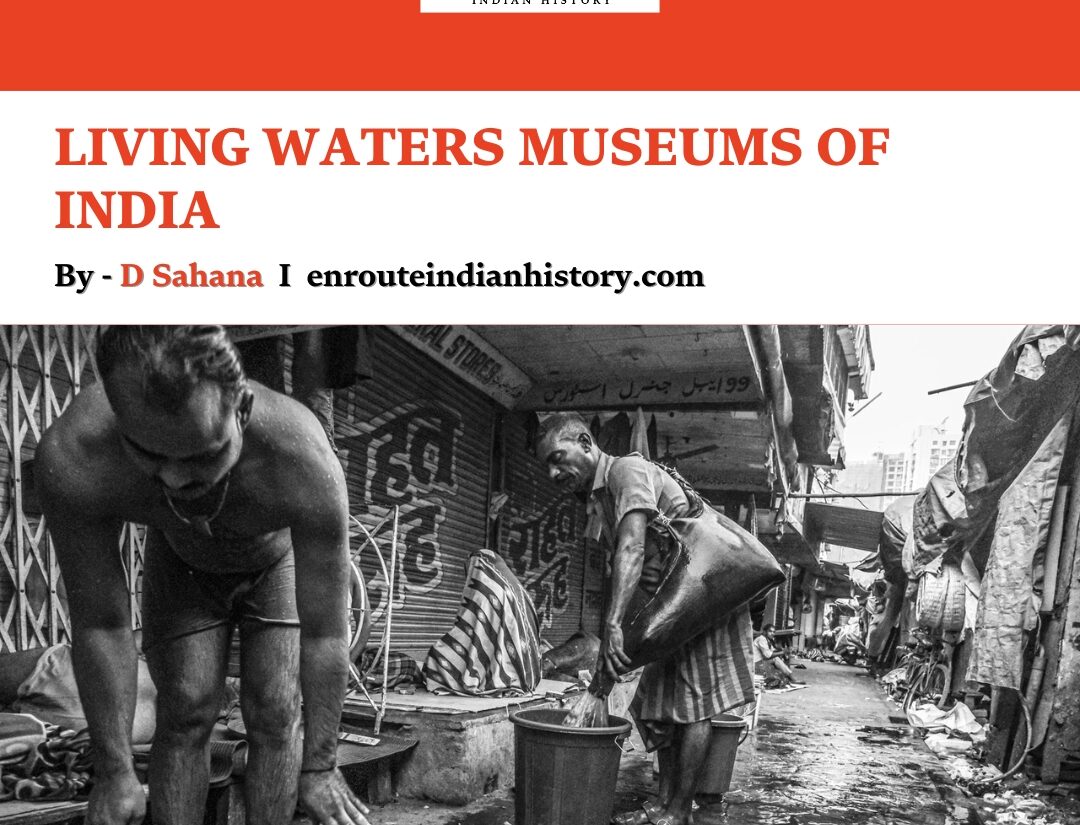
Since childhood, we have been taught that water is a source of life and that we, as human beings, must respect and cherish this precious resource; however, with the rampant environmental changes due to global warming, massive deforestation, etc., resulting in not just decline in the diversity of flora and fauna but also degradation of many natural resources. Water has been highly contaminated with pollutants like plastic, industrial wastes, etc. This article primarily focuses on water and its story. Also, it dwells on the sustainability and conservation of water by looking at the digital water heritage museum, The Living Waters Museum.
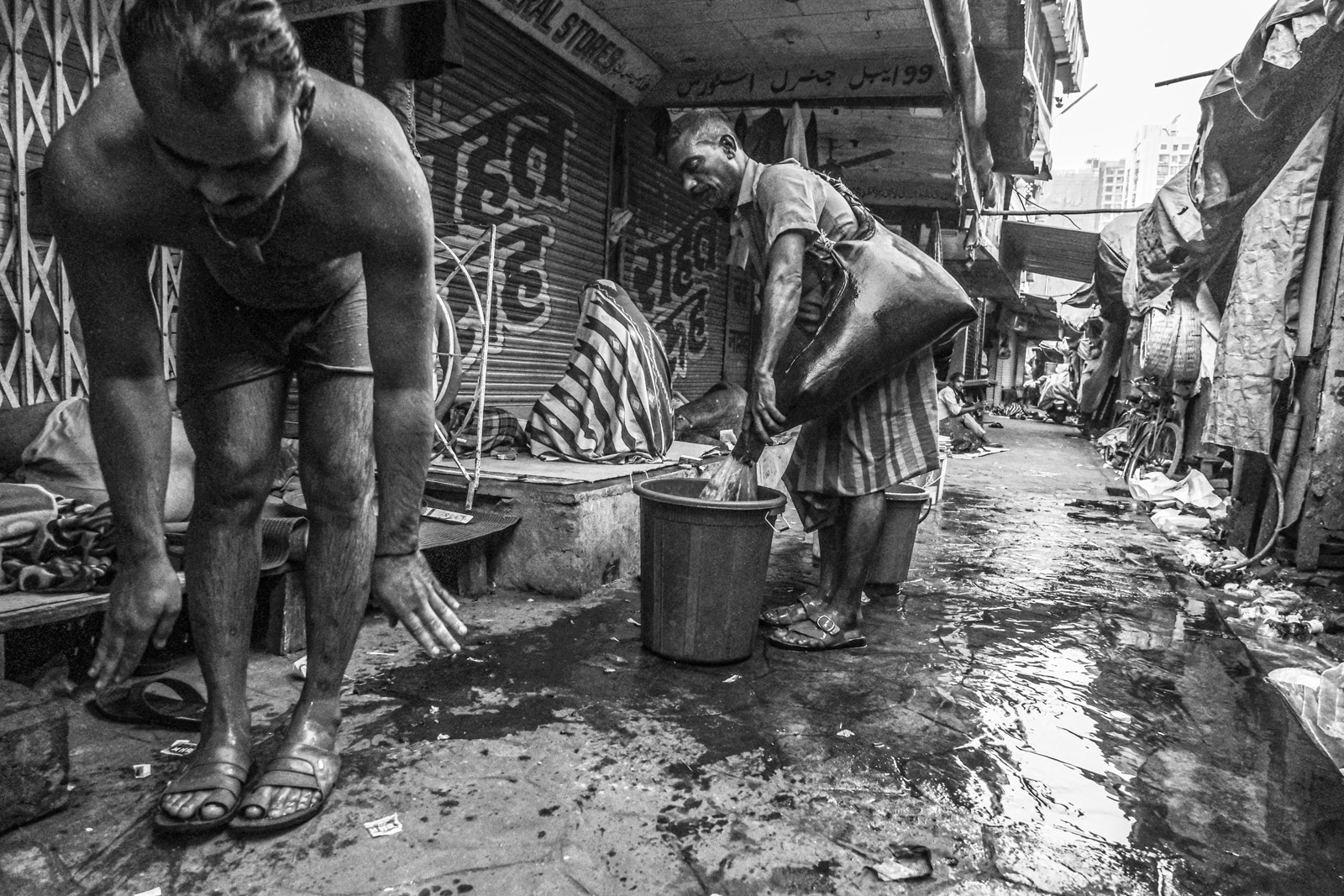
The ‘Bhistees’ and their ‘mashqs’ by Mohmad Aslam Saiyad; Living Waters Museum, India
(source: https://irememberwater.watermuseums.net/exhibition/22)
Water is not just a resource; it has been a part of human communities for the longest time. Since the earliest human settlements, the presence of a water body was essential for sustenance and the growth of the human settlement at large. Apart from being an integral aspect of human settlements, it is also revered in many religions. Due to this, water, since ancient times, has had a profound impact on the lives of human beings. Hence, with the rapid pace of industrialisation and urbanisation, there is immense change in the lives of human beings. The exploitation of resources was now taking a much faster pace than in pre-industrial times, and with the subsequent centuries, the pace has only increased. Hence, with the awareness of rapid climatic changes caused by these exploitations, it has become essential for humans to engage in the practice of sustainable use and protection as well as conservation and education on water preservation. This is where the project of water museums comes into the picture.
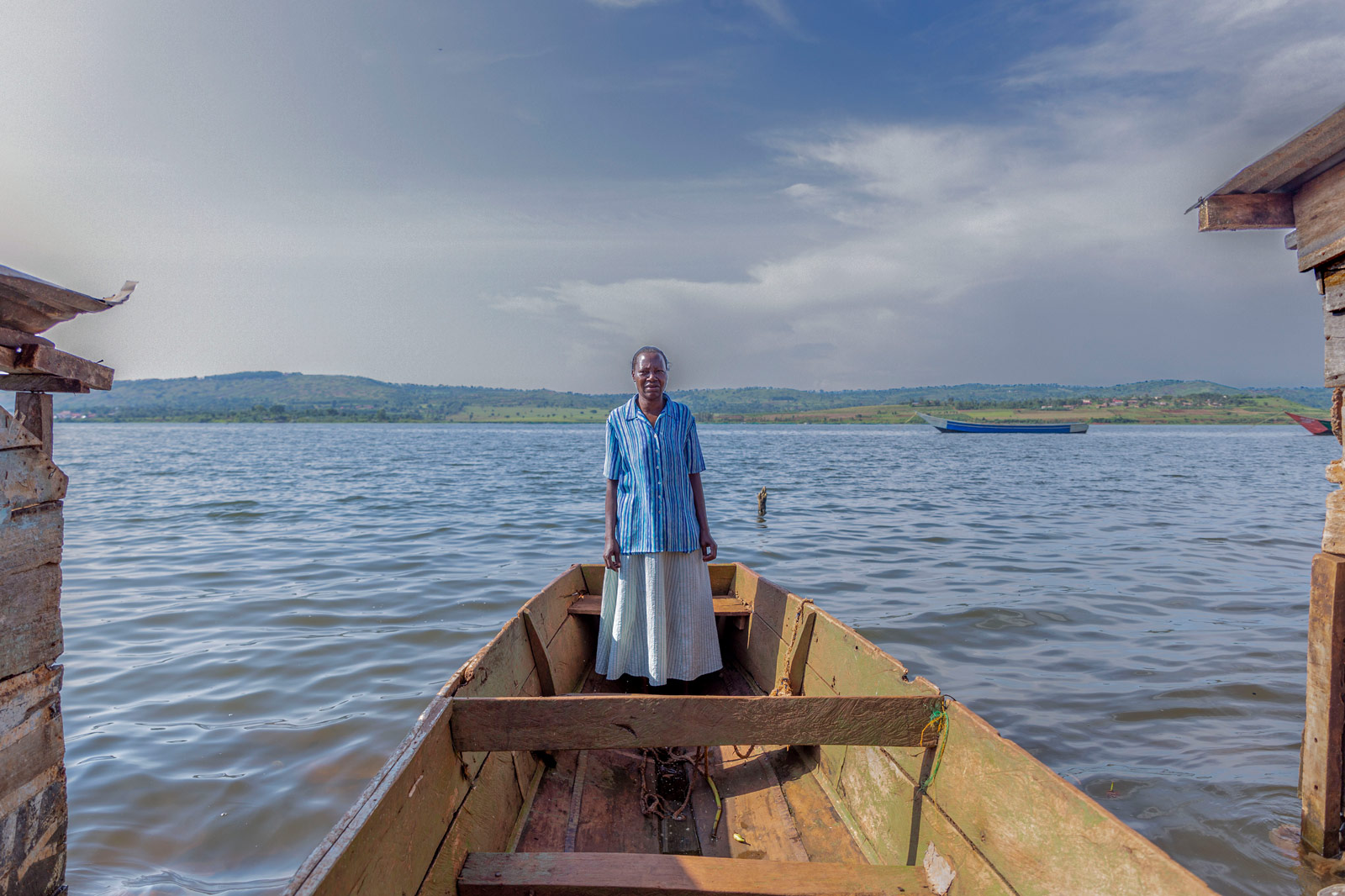
‘Sinking Land’: Man and water collide as floods overtake a clinic on Lake Victoria by Watsemba Miriam, IHE DELFT Institute for Water Education; Uganda
(Source: https://irememberwater.watermuseums.net/exhibition/52)
WHY WATER MUSEUMS?
Water museums archive the memories of humanity’s relationship with water. The 2022 Global Digital Exhibition named “I Remember Water” perfectly encapsulates the relationship between water and humans and focuses on why future generations need to understand this relationship for a better future. The curatorial note mentions, “A new ‘culture of water’ cannot grow without memory. Memories, whether sensory or emotional, short-term or long-term, material or immaterial, are fundamental to our existence as individuals and collective societies”.
The exhibition put light on the issues of global disparity over water accessibility. It also focused on the changing and evolving relationship between water and humans, from public fountains to tap water provided by the municipalities. It also highlighted that due to climate change, there would be new challenges posed to global water governance, and hence, it is essential to find new ways for people to connect with their water history and heritage and build communities to spread more awareness over these issues.
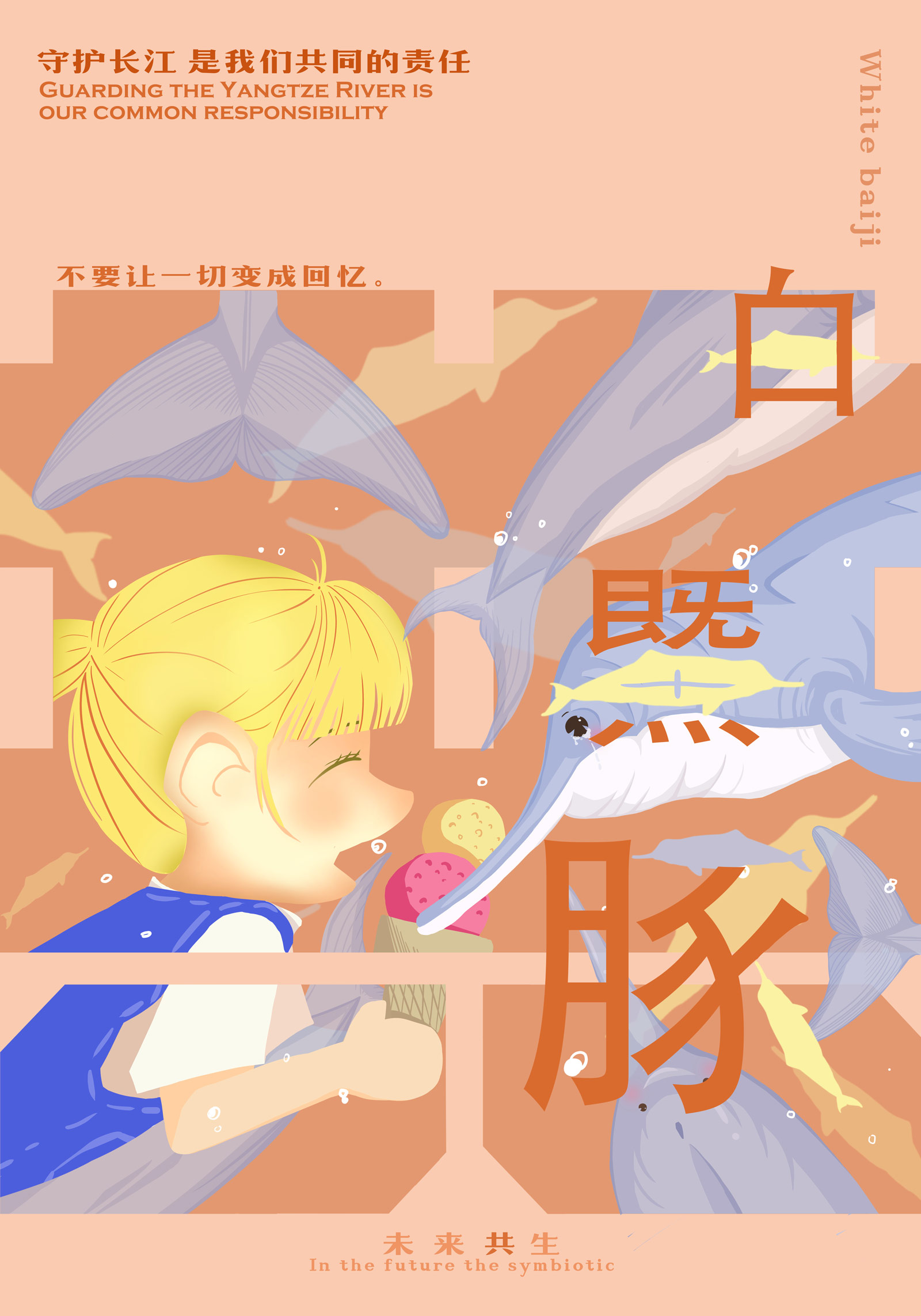
Future co-existence by Qin Shaohua; Changjiang Civilization Museum, Wuhan; China
(source: https://irememberwater.watermuseums.net/exhibition/8)
WATER MUSEUMS: THE INDIAN STORY
The Living Waters Museum was launched in 2017 by Sara Ahmed. This hybrid museum tends to look into the rich and diverse traditions of water history and heritage practices and build a digital repository of water and its story for the future. This repository contains information on water systems, their history and protection. They believe water has shaped civilisations across the Indian subcontinent, inspiring art, architecture, folklore, rituals, practices, trade, etc. However, population growth, unsustainable development patterns, and the growing risk of climate change threaten water security. Hence, preserving this vast human knowledge of water and our relations with water is vital to understanding our past better for the future.
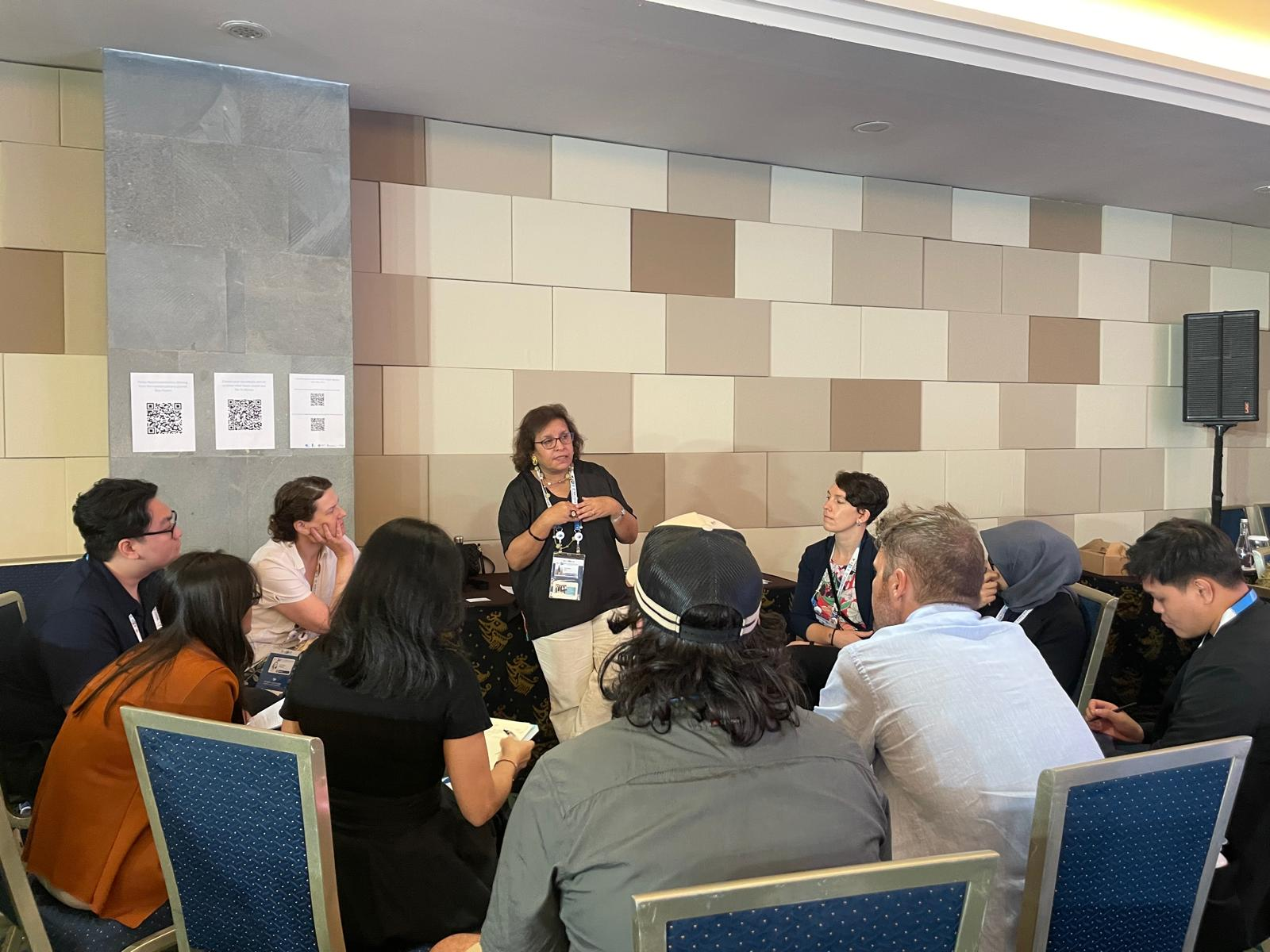
Sara Ahmed(In black); Founder: The Living Waters Museum
(source:https://www.livingwatersmuseum.org/about)
This museum has undertaken several projects to deal with these issues. One such effort was tracing Jodhpur’s water history, a collaborative project with the Mehrangarh Museum Trust. The project focused on finding Jodhpur’s water systems and practices. This project led to renovating and restoring the Mehrangarh Fort and the step-wells for use. Other cities such as Kolkata and Pune have also been under these collaborative practices of trusts and local persons who jointly help restore and renovate traditional water systems for usage. Another project, The Water Classrooms, was also taken up by the Living Waters Museum, which dealt with climate advocacy through creative arts.
WATER SUSTAINABLE EDUCATION
UNESCO-IHP in 2018 and 2021 highlighted the importance of fostering water sustainability education through networked water museums and developing a world inventory(WIN). Hence, water museums are coming up globally to educate and spread awareness to people of all ages and to think about ways to manage water and protect the relationship between human and water history and heritage. This has led to many educational activities and, as Eriberto Eulisse writes, “a shift in educating to bring a radical change in considering the causes of problems and possible solutions involving more reasonable water use”.

The World Inventory (WIN) campaign poster
(Source: https://www.watermuseums.net/activities/world-inventory/)
Eulisse also stressed non-formal education, as apart from basic scientific knowledge of water, non-formal education helps reestablish emotional connections with water. He takes examples of “emotional geographies” or “sense of place” of riverine communities, as said by Francesco Vallerani, to instil and promote a holistic educational approach for new perspectives on water conservation.
REFERENCES:
Ahmed, S. and Sen, S. (2022) ‘Living Waters Museum: a digital platform for sustainable and inclusive futures,’ Blue Papers, 1(2), pp. 70–77. https://doi.org/10.58981/bluepapers.2022.2.07.
Eulisse, E. (2023) ‘Museums for the past and future meaning of water,’ Blue Papers, 2(1), pp. 112–123. https://doi.org/10.58981/bluepapers.2023.1.11.
Home – Living Waters Museum. https://www.livingwatersmuseum.org/.
I remember water (2022). https://irememberwater.watermuseums.net/.



